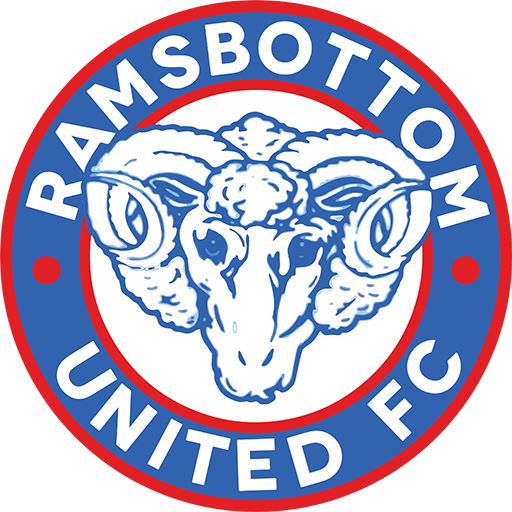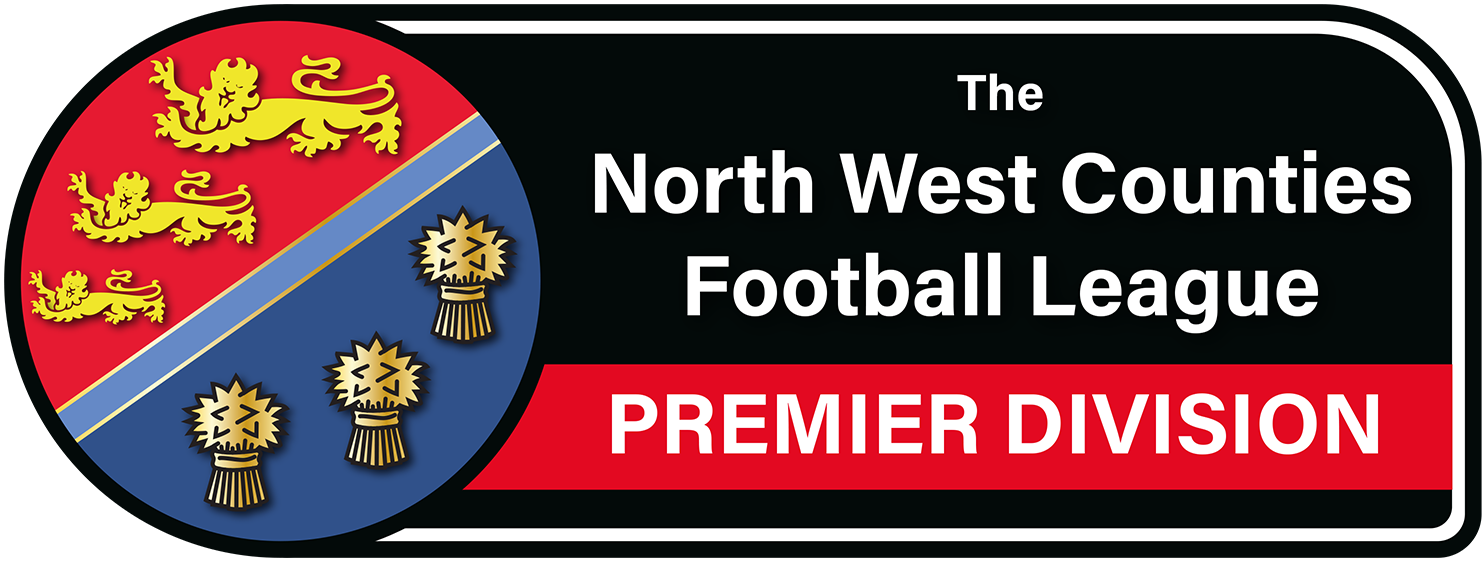HISTORY
We are a football club based in Ramsbottom, Lancashire, England. In the 2003-04 season, we reached the third round of the FA Vase. We are currently members of the Bet Victor Northern Premier League Division One North and our home is the Harry Williams Riverside Stadium. Our nickname is The Rams.
Foundation
Ramsbottom United was founded in 1966, and one of the founders, Harry Williams, is still, to this day, Chairman, almost 50 years later! Harry has overseen the club progress from a parks pitch on the outskirts to a well-appointed stadium in the centre of the east Lancashire town, adjacent to Ramsbottom Cricket Club, the East Lancashire Railway and the River Irwell, capable of holding 2,000 supporters.
The early days were spent in the local Bury Amateur League, before the move to the Bolton Combination in 1970. The Rams clinched the Championship of Division One in 1973, following that up with the Premier Division title four years later.
These were just two of the many honours picked up in League and Cup competitions whilst Harry was manager between 1966 and 1985. During that time, the club moved from the unsuitable and difficult to access Chatterton ground to the current Riverside base in 1980.
The next progression on the pitch was to the wider-based Manchester League in 1989. In 1991, the double of Champions and Cup Winners in Division One was achieved, and with it promotion to the top division. Also, rather strangely, the club were runners-up in the Yorkshire Cup in 1994, by which time a strong Junior base had been created. As well as the first team, many honours were collected by the youngsters including League titles and Cup victories, as the club developed very much into a community organisation.
The move into the ‘Football Pyramid’
In 1995 an application to join the football pyramid at North West Counties League level was approved, and after much hard work on the ground, a grading was received to allow access to the second tier of the regional league. Despite finishing 12th in the inaugural season, the Rams lifted the Divisional Trophy beating Cheadle Town at Darwen’s Anchor Ground – the first of a number of successes at semi-professional level.
At the end of the 1996/97 season, the club installed floodlights for the first time – acquiring a set from the soon-to-be-demolished Watersheddings ground of Oldham Rugby League Club. These were in place in time for the club to move up to the top Division, having won the championship of Division Two in only their second season.
At that time, the club also ran a Reserve team, and it, too, brought home a number of trophies, including the Reserve Division cup in 1998 and the title twelve months later.
Having entered the FA Vase a couple of years earlier, the club’s first taste of FA Cup action took place in 1998, and they progressed to the 3rd qualifying round before losing at home to Conference side Southport in front of a then-record 829 home gate (easily beating the previous figure of 464 for the local derby with Haslingden).
Third place in the Premier Division was attained in season 1999/2000. The following season brought many high spots, especially the 3-0 home derby win against top-of-the-table Rossendale United. When the return fixture was played and won at Dark Lane at Easter, the Rams were just six points behind the leaders with four games in hand. Hopes were high that the championship could be clinched. Alas a late dip in form saw those hopes dashed, but high standards had been set.
Tragedy struck in 2001, as successful manager Ken Bridge collapsed and died following a home game against Cheadle Town, but he is remembered with the gates at the entrance of the ground being named in his honour.
The next few seasons brought little in the way of success, with the local Bolton Hospital Cup victories producing the only trophies on three occasions. The only bright spot was the appointment of Derek Egan as manager in the summer of 2004 reigniting hopes of a tilt at the title. A newly-assembled squad produced some entertaining football, including a double over eventual winners Fleetwood Town, but again, a disappointing finish resulted in a fifth placed spot in the league.
The Morley and Johnson Revolution!
Egan resigned at the end of the season, and a number of managers came and went without success until the Chairman took the bold step of appointing joint-managers in players Bernard Morley and Anthony Johnson at the beginning of the 2009/10 campaign.
Supporters questioned the appointment after the first game! A 5-0 drubbing at the hands of Newcastle Town, although no-one was to know that Town were to embark on a 30 game unbeaten run as they sailed towards the championship. Stability soon ensured, and the players brought in by the duo began to produce the style of football that had not been seen since the Egan days. On the whole, the campaign was a success. A ten-year best total of 81 points and a club-record 14 away victories, along with the April Manager-of-the-Month award, and, for forward Andy Sensale, the Player-of-the-Month acclaim for October. The first season in charge for the two local lads was merely an indication of what was to come.
2010/11 proved to be even better as the crowds began turning up in increasing numbers at the newly named “Harry Williams Riverside Stadium” (the sign going up without the Chairman’s knowledge!). Finishing runners-up to New Mills (only one team promoted from the NWCFL), the team scored over 100 goals winning more league games than ever before. The managers won two “Manager-of-the-Month” awards, with monthly player accolades going to Phil Dean and Jon Robinson.
But even better was to come! The 2011/12 season finally saw the Rams move up again after 17 years in the North West Counties League. More goals, more points, more home wins and more supporters (the club’s then attendance record of 1653 was achieved against FC United of Manchester) culminated in the team edging out Runcorn Town with a magnificent end-of-season unbeaten run. The Championship trophy was raised after a 5-2 home win over Winsford United in front of over 500 fans, and the club could now look forward to renewing acquaintances with many former opponents in the Evo-Stik Northern Premier League.
Into the Northern Premier League
The Main stand was extended, a new covered stand erected behind the Railway end, and a Sponsor’s Lounge arrived at the ground, as improvements continued to enhance what used to be a plot of waste land aside the cricket pitch. The new challenge hardly saw the club falter after three years of entertaining and successful football. But for a winning goal scored by the champions Skelmersdale United in time added on in the last game of the season in west Lancashire, the Rams would have competed in the play-offs at the end of a great first season which saw them agonisingly miss out in sixth spot.
2013/14 will go down in folklore in the town. After a dreadful start which saw the club bottom of the league after the early rounds of games, steady progression saw a gradual push up the table. More Player and Manager-of-the-Month awards were achieved as the race between up to a dozen clubs for the play-off spots (Curzon Ashton ran away with the top spot) continued to the very last week of the season. A last day home draw with Bamber Bridge saw both teams qualify, but it meant that the Rams had to travel up to Durham to meet the re-incarnation of former Football League side, Darlington.
The home side were expecting to progress, but having already achieved the double over them, a trip to Darlo’s temporary home at Bishop Auckland held no fears. Despite the vociferous and partisan crowd of almost 2,000, the hundred or so who had made the journey up from Lancashire were treated to a performance that silenced the home fans and deservedly saw a return home with plans afoot for the short trip to meet Bamber Bridge again at Irongate four days later.
The play-off final attracted over 1,200 people, and whilst it was a tight affair with a last kick penalty squaring the game for the home side, the Rams notched another in extra time to deservedly win the game and with it a remarkable second promotion in three seasons.
The first season at Evo-Stik Premier level was probably the most traumatic in the club’s history. Having begun the campaign well with basically the same squad, the management team decided to accept an offer to join Salford City, one Division below, and promptly moved in early January with the club just outside the play-off positions. They then proceeded to take the coaches and eight players with them, leaving the Rams in a state of turmoil. Long-serving striker Jon Robinson was handed the onerous task of putting together a new squad and preserving the club’s status. Despite some understandably disappointing results, he, along with returning player/assistant manager Phil Edghill, managed to avoid a relegation battle with four games to go, much to the relief of all at the Harry Williams Riverside Stadium. The club also attracted it’s record crowd when 2104 turned up for the game against FC United of Manchester.
However, after a poor start to the 2015-16 campaign, manager Robinson resigned in September, his place being taken by former Trafford manager Garry Vaughan, who was assisted by Phil Edghill and coach Wayne Goodison.
On Boxing Day 2015, the ground was submerged under 5 feet of water from the adjacent River Irwell, causing damage running into thousands of pounds. This resulted in the team having to play eight consecutive matches away from home.
It merely emphasised what a miserable year 2015 truly was!
Sadly, the club could not escape the clutches of the bottom four, and for the first time in the 50 year history, relegation ensued, and the Rams returned to Evo-Stik Division One North.
Vaughan, Goodison and Edghill departed, with Mark Fell and Paul Fildes taking over at the beginning of the 2016/17 season. Fildes resigned at the end of December leaving Mark Fell in sole charge, but an inconsistent run-in saw the club finish in 14th position.
For the first time in many years, the Rams also fielded a Reserve side, one of 44 teams overseen by the thriving Junior section of the club.
Another 14th position ensued, and in October 2018, Fell decided it was time to move on and took up the reins at Premier Division Lancaster City.
The Rams wasted no time in appointing their former player, and ex-Shaw Lane and Glossop North End boss Chris Willcock as the new man in charge.
That heralded a massive change of fortune. Taking over a club in the lower half of the league, performances and results improved massively. Having already been knocked out of both the FA Cup and League Cup, the only knock-out competition open to the new management team was the FA Trophy, and no-one could foresee the terrific record-breaking run that the club enjoyed in that competition.
Away game after away game took in trips to Trafford, Frickley, Yaxley, Pickering and Workington, all successfully negotiated even if replays were required on the last three occasions before eventual Southern League champions Weymouth had to make the long journey up north. A last minute equaliser saw the Rams come from behind to draw the game, but faced a 500 mile round trip the following Tuesday. Odds were stacked heavily against the Rams, but a tremendous performance, backed by what are now known as “The Weymouth 17” supporters saw the return journey pass so much quicker on the back of a 3-1 victory.
Another home draw in the last 16 brought AFC Fylde to the HWRS. Postponed on the Saturday, the rearranged game took place on a miserable Tuesday night, but the BBC cameras, and reporters from all round the country, were treated to an absolute cracker. Twice coming from a two goal deficit, the Rams amazingly took a 5-4 lead with minutes to go, but the Coasters notched a last gasp equaliser to take us back to Fylde. There the dream ended, but the hosts went on to win the Trophy, but they did it the hard way by disposing of a tenacious Ramsbottom United team.
Back in the League, the rise up the table continued, and the club eventually finished in 5th position, but lost out on promotion as they were beaten in the Play-off semi-final by eventually-promoted neighbours Radcliffe.
The 19-20 season promised much, but with the onset of the Coronavirus in March, the season was declared “null and void” with the Rams sitting in second place in the table, thus denying the team the opportunity to gain the promotion the form of just one defeat in the last seventeen games had justified.
The 20-21 season followed suit, although this time “curtailed” with The Rams in second place after just eight matches.
The frustrating thing being that out of the teams last 26 league games played, 20 had been won, 4 drawn and just 2 defeats, form that at any other time would most certainly have gained promotion if not a championship.
Ahead of the 21-22 season, manager Willcock was tempted away to rivals Workington, so the Rams immediately filled the vacancy by promoting assistant manager Lee Donafee into the hot seat, having been an integral part of the management team which had done so well for the Rams in recent seasons.
The late appointment caused a certain amount of disruption, and an ultimately disappointing season saw the Rams finish in 15th position in the table.
Hopes were high for the 22/23 season, but a disappointing run of results saw Donafee replaced in the hot seat by former FC United of Manchester legendary defender and assistant manager David Chadwick in February 2023.
Alas, Chadwick was unable to prevent relegation back to the North West Counties League, and the club appointed the experienced Steve Wilkes with the task of attempting to regain the club’s NPL stature.






